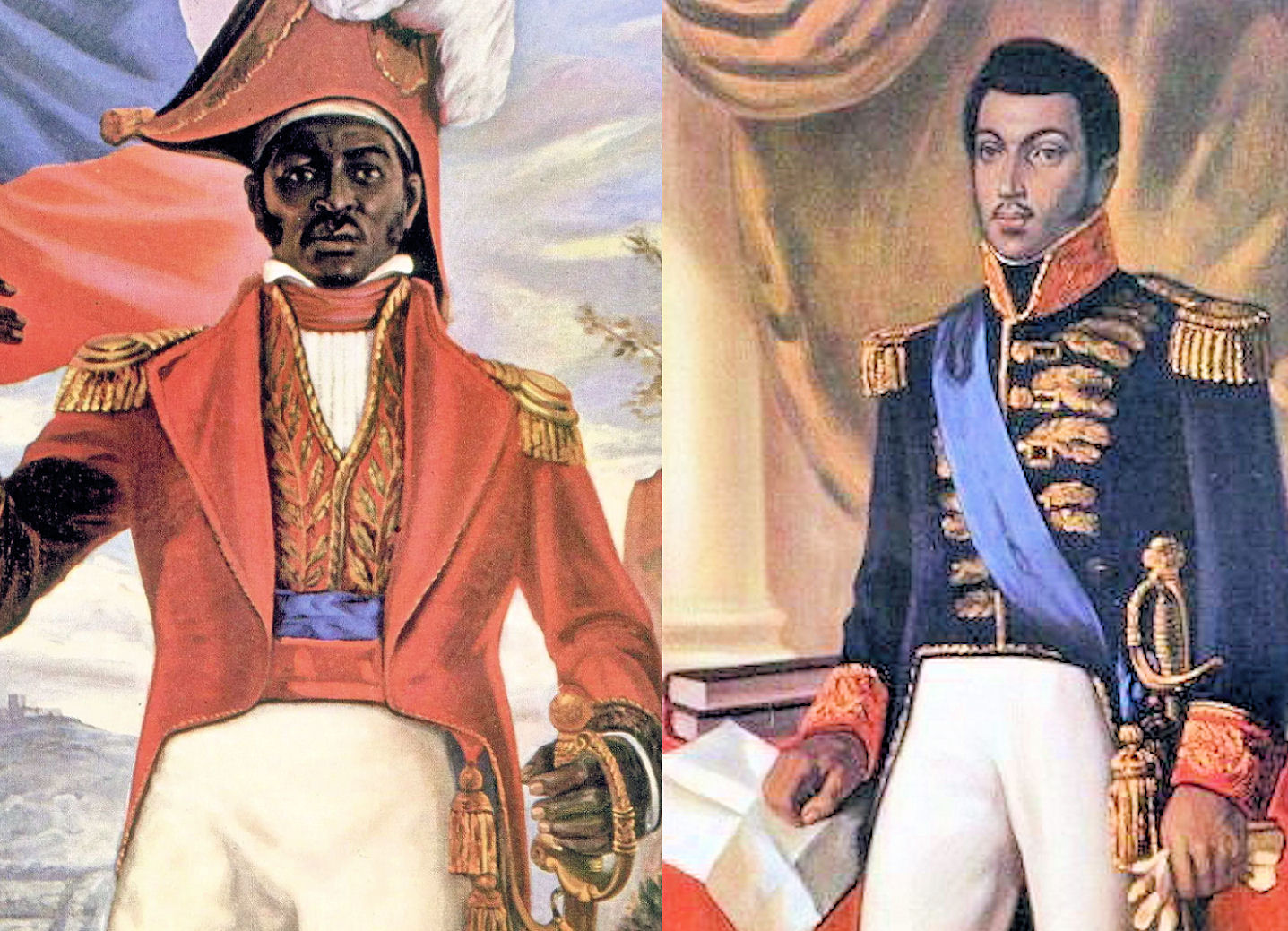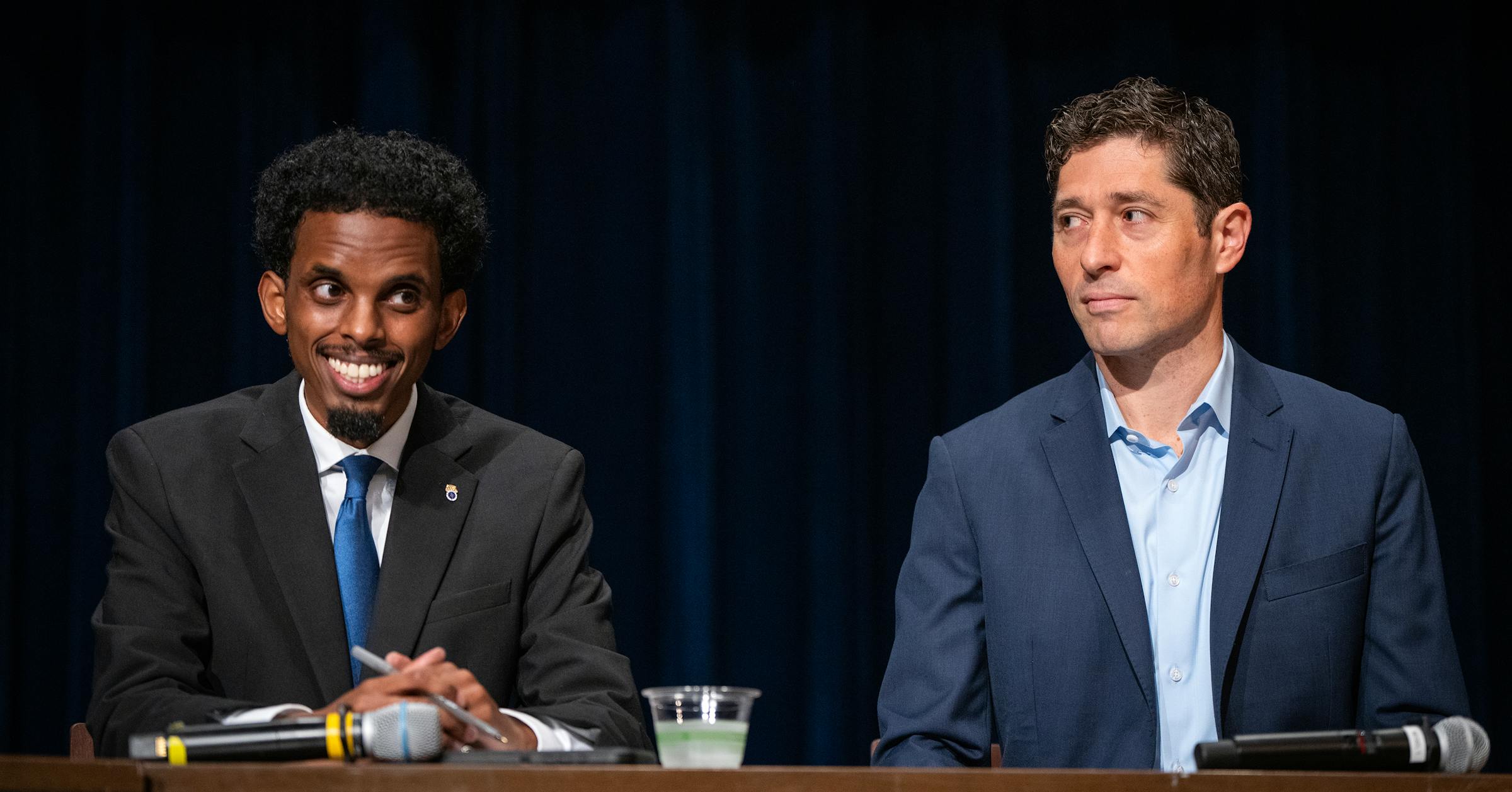Copyright haitiliberte

“Unity is strength,” says our national motto. The Aug. 7, 1802 meeting in the northern town of Plaisance between the former slave, Jean-Jacques Dessalines, and the freedman, Alexandre Pétion (nicknamed the bombardier of the Crête à Pierrot), son of the colonial system, who returned to Saint-Domingue with French General Leclerc’s expedition to re-establish slavery, sealed the pact that would lead not only to the first victory of a national liberation struggle in Latin America but also to our independence and the founding of Haiti on Jan. 1, 1804. This dialogue, which was transformed into a united front between these two enemies, truly marked the beginning of the era in which slaves and colonies around the world began to win their freedom. A similar “united front” took place in China 89 years ago. It was in 1936, when Chiang Kai-shek, the supreme leader of the Kuomintang, the dominant ruling party in China, had waged a brutal, bloody offensive against Mao Zedong’s communist Red Army, based in northwestern China. Tens of thousands of Chinese perished in this civil war for control of political and military power. Then, in December 1936, Chiang’s army, many of whose generals and soldiers supported the communists’ call for unity to drive out the Japanese imperialists who were taking over the country, mutinied against him and took him prisoner. The insurrectionists immediately called on the communists for help in deciding what to do. The mutineers wanted to execute Chiang, considering him a traitor who had retreated in the face of the Japanese and collaborated with them. The final decision was left to Mao and the communists, who not only spared Chiang’s life but reinstated him as head of the Kuomintang, on the condition that he agree to establish a coalition with them and form a “United Anti-Japanese Army” to fight the common enemy. Mao, interviewed a few months earlier while leading the revolution from a cave in Pao An by the American journalist Edgar Snow for the book Red Star Over China (published in 1937), clearly explained that China needed the unity of its people and all its class forces, not their division, to achieve its independence. “The Chinese national liberation movement’s victory will be part of world socialism’s victory because to defeat imperialism in China means the destruction of one of its most powerful bases,” Mao said. “If China wins its independence, the world revolution will progress very rapidly… For a people being deprived of its national freedom, the revolutionary task is not immediate socialism, but the struggle for independence. We cannot even discuss communism if we are robbed of a country in which to practice it.” (Our emphasis) we must put forward the proposal for a national dialogue, which U.S. imperialism views with extreme hostility Mao’s analysis was truly prophetic, and his progressive “united front” strategy was correct. Not only did the Chinese succeed in driving out the Japanese and accomplishing a social revolution 13 years later, in 1949, but they also gave birth to a politically and economically powerful nation that, in the space of only 70 years, went from being one of the poorest and most dysfunctional states in the world to being the richest, most developed, most stable, and most popular. The success of the Chinese revolution allowed its immense population of 1.4 billion people to escape poverty and overturn the hegemony that the United States and Western Europe have exercised over the planet for more than two centuries. In Haiti today, U.S. imperialism, whose more than century-long domination is worsening and destabilizing our nation with the complicity of the parasitic, sterile Haitian bourgeoisie in power, has even dared to bomb children in an impoverished neighborhood without any scruples. Since the rise of their empires 300 years ago, the Anglo-American strategy of hegemonic domination has always been to “divide and conquer,” whether in Africa, Asia, or the Americas. Can we today learn from the lessons of our ancestors and the Chinese communists, both of whom ushered in eras of liberation and progress through dialogue and class unity? The Haitian left, if it still exists, must not continue to be blindly led astray by the pro-imperialist bourgeoisie. If it wants to overcome its weakness, it has only one chance: to join the movement of the oppressed and starving masses to organize a new popular, anti-reformist, and anti-imperialist political vehicle. Haiti’s 1804 revolution marked the beginning of the liberation of all of Latin America The conditions of people in society determine their ideas, their conceptions, and their political choices; this is what Marxism teaches. The time has come to unite with the working masses, the ghettos’ proletarians, despite the setbacks, the divisions, the pain, and the conflicts against the common enemy, imperialism, which is profoundly disrupting the planet. It is in this context that we must put forward the proposal for a national dialogue, which U.S. imperialism views with extreme hostility and is doing everything to prevent. Among Haitians, all compromises are possible. Certainly, we have different social classes with divergent, often antagonistic, interests. The bourgeoisie and the proletariat are obviously at odds. However, any call for unity against foreign colonizing and occupying forces like the UN Stabilization Mission (MINUSTAH), the Multinational Security Support Mission (MSS), the Gang Suppression Force (GSF), wherever it comes from, must be taken into consideration. Let’s take the example of Venezuela’s President Nicolas Maduro: didn’t he call on his people to unite to fight the external threats of imperialism against the Bolivarian Revolution? Obviously, in this epic battle against the rise of U.S. fascism, a coalition of united countries should be formed to show solidarity with the Venezuelan people and government. In this case, the Presidential Transitional Council, created by and subservient to U.S. imperialism, on which side would it place Haiti: that of U.S. imperialism or that of the Venezuelan people? Haiti’s 1804 revolution marked the beginning of the liberation of all of Latin America, which Washington is now desperately and futilely trying to roll back with troops, planes, and warships deployed against Haiti, Venezuela, and Colombia. They will fail, just as they failed in China and Vietnam. As the Pan-Africanist Kemi Seba taught us, “armed groups are not our enemies, but certainly Western imperialism is.” Let us therefore reread history, learn its lessons, and rebuild our nation. In this way, we can accomplish the same miracles that we witnessed during the last century in China, not to mention other sovereign neighboring nations like Cuba, Nicaragua, and Venezuela. No one should be deceived. Only the organized unity, without sectarianism, of all popular forces against the common enemy will be able to stop the aggressive domination of imperialism over our homeland. Only this unity can lead to the national and social liberation of our country.



